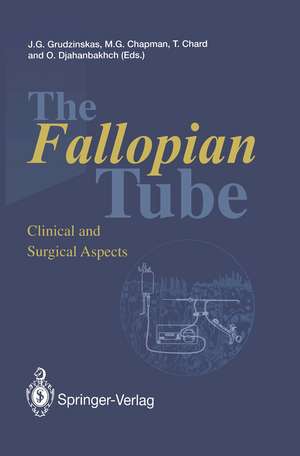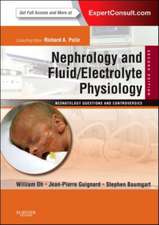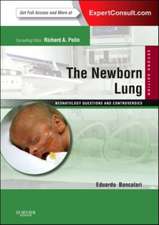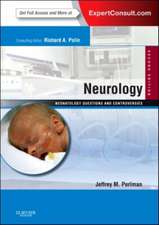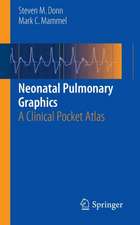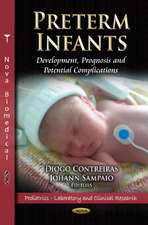The Fallopian Tube: Clinical and Surgical Aspects
Editat de Jurgis G. Grudzinskas, Michael G. Chapman, Timothy Chard, Ovrang Djahanbakhchen Limba Engleză Paperback – dec 2011
Preț: 717.20 lei
Preț vechi: 754.95 lei
-5% Nou
Puncte Express: 1076
Preț estimativ în valută:
137.24€ • 143.94$ • 114.25£
137.24€ • 143.94$ • 114.25£
Carte tipărită la comandă
Livrare economică 01-15 aprilie
Preluare comenzi: 021 569.72.76
Specificații
ISBN-13: 9781447119890
ISBN-10: 1447119894
Pagini: 320
Ilustrații: XIV, 302 p.
Dimensiuni: 155 x 235 x 17 mm
Greutate: 0.45 kg
Ediția:Softcover reprint of the original 1st ed. 1994
Editura: SPRINGER LONDON
Colecția Springer
Locul publicării:London, United Kingdom
ISBN-10: 1447119894
Pagini: 320
Ilustrații: XIV, 302 p.
Dimensiuni: 155 x 235 x 17 mm
Greutate: 0.45 kg
Ediția:Softcover reprint of the original 1st ed. 1994
Editura: SPRINGER LONDON
Colecția Springer
Locul publicării:London, United Kingdom
Public țintă
ResearchDescriere
The examination of the human fallopian tubes was, until recently, restricted to observations on gross anatomical disposition and tubal patency. These studies, for decades, were the domain of doctors and physiologists whose primary interest was population control and family planning, funded largely by organisations and agencies seek ing alternatives to steroidal contraceptives. For a "worrying" but short period after the birth of Louise Brown in 1978 as the conse quence of successful in-vitro fertilisation and embryo transfer, the fallopian tube was considered to be "dispensable" given that the metabolic milieu in which human fertilisation takes place could be effortlessly reproduced in a Petri dish, in in-vitro fertilisation procedures. However, a number of factors have acted together to renew in terest in the fallopian tube, namely new techniques in cell biology, microinstrument developments (in particular in imaging), an inter disciplinary transfer of skills from interventional radiology and car diology to gynaecology, the surgeon's wish to improve surgical tech niques, and better techniques to monitor early pregnancy. These factors have led surgeons to develop the new diagnostic and ther apeutic strategies and techniques listed here. This volume contains contributions from the majority of keynote speakers at a conference held in London in April 1992 from which its title is derived. Better diagnostic procedures should lead to the implementation of rational effective treatments.
Cuprins
Section I: Microanatomy, Physiology and Metabolism of the Fallopian Tube.- 1 Fallopian Tube Anatomy, Microanatomy, Microcirculation and Counter-current Exchange.- 2 In Vivo and In Vitro Behaviour of Human Tubal Epithelial Cells: Their Relevance to Assisted Reproduction.- 3 Fallopian Tube Epithelial Cell Culture.- 4 Biochemistry of Tubal Secretions.- 5 Oviduct Proteins.- 6 Gamete Transport and Fertilisation.- Section II: Tubal Endoscopy.- 7 Transcervical Tubal Endoscopy: Falloposcopy.- 8 Transabdominal Tubal Endoscopy.- 9 Transabdominal Salpingoscopy: The Significance of Mucosal Lesions in Infertility.- Section III: Diagnosis and Treatment of Tubal Disease.- 10 Proximal Tubal Disease: Diagnosis and Endoscopic Treatment.- 11 Transcervical Tubal Cannulation in the Diagnosis and Treatment of Tubal Obstruction.- 12 Laser Technology: Endometriosis and Tubal Surgery.- Section IV: Pelvic Inflammatory Disease.- 13 Pelvic Inflammatory Disease — An Overview.- Section V: Surgical Techniques for Female Sterilisation.- 14 Novel Techniques in Tubal Contraception.- 15 The Consequences of Surgical Tubal Occlusion.- Section VI: Gamete and Embryo Transfer into the Fallopian Tube.- 16 Transabdominal Gamete Intrafallopian Transfer.- 17 Transvaginal Gamete Intrafallopian Transfer.- Section VII: Diagnosis and Treatment of Ectopic Pregnancy.- 18 Early Diagnosis of Ectopic Pregnancy.- 19 Management of Tubal Pregnancy-Transabdominal.- 20 Non-surgical Approaches in Ectopic Pregnancy: Systemic Medical Treatment or Local Injection Therapy?.- 21 Transcervical Tubal Cannulation and Ectopic Pregnancy.
